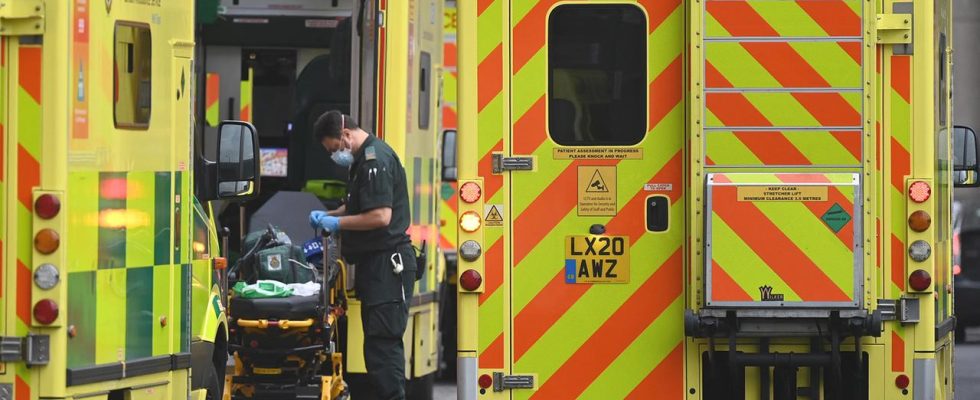The British health system NHS is actually popular with the population. After 75 years, the British are feeling the effects of underfunding. The NHS is often understaffed and overwhelmed.
In 1944, while World War II was still going on, Henry Willink, then Secretary of Health, announced the new health system: “Our plan is a health service that will provide the best medical advice and treatment for everyone in this country.” The promise back then: No matter what income you have – if you want to use this service, you don’t have to pay anything for treatment.
To improve the health of the population
The aim was to improve the health of the general population. Above all, access to medical care was to be given to members of the working class who had hitherto not been able to afford medicines and visits to the doctor.
Four years later, in 1948, the National Health Service, NHS, was launched. At the time, the media called on the British to do their part to make it a success: “The new national health service will start on July 5. […] Have you already chosen your family doctor? If your doctor is unable to take you ask the post office for the address of the district office where they can give you the names of other doctors in your area who participate in the NHS. Don’t forget to choose your doctor now.”
Financed mostly through taxes
The British health service is funded largely through taxes. With around 1.6 million employees, the NHS is now the largest employer in Europe. The NHS is a national unitary organization with regional divisions.
There is no competition in the NHS, as there is in Germany between health insurance companies. There are also other differences: if a patient wants to see a specialist, you first have to go to the general practitioner, the family doctor, who will refer you if necessary. Specialists do not have their own practices to go to, but work in hospitals – a circumstance with which the NHS counteracts oversupply.
The strength of the NHS has slowly turned into a weakness
What was once thought to be a strength of the NHS – the national unity organization and tax funding – has, however, also proved to be an open flank over time. Prof. Thomas Gerlinger from the University of Bielefeld, who researches and compares healthcare systems, puts it this way: “In a state healthcare system, the level of financial allocation for the healthcare system is of course very closely linked to the will of the legislator, the governing majority in parliament.”
Since 2010, the government in Great Britain has been in the hands of the conservative Tories, who have pursued a rigid austerity policy, particularly under Prime Minister David Cameron. Health care has long reflected this, the NHS is understaffed and often overwhelmed.
Almost 7.5 million people are waiting for treatments
Almost seven and a half million people are currently waiting for treatments and surgeries, most of them for months, but hundreds of thousands also for more than a year. But many Britons who are even trying to get a dentist appointment also have to live with pain. Gerlinger believes that the British healthcare system is basically good, but points to the severe underfunding of the NHS:
Funds are too scarce. Much less is spent per capita in Great Britain than in Germany.
In Germany it is about – converted into purchasing power parities – 7000 dollars per year and in Great Britain about 5000. And you can see that in the number of beds: According to Gerlinger, the bed density in Germany is 7.8 per 1000 inhabitants UK at 2.4.
get British underfunding to feel more
The NHS actually enjoys a very high reputation among the population. In the meantime, however, the British are increasingly feeling the effects of underfunding. In a recent survey, only a third of those surveyed rated the performance of the healthcare system as good.
The fact that the NHS has been on strike for months does not make the situation any better. First the nurses were on the streets, now the doctors are on strike. These are the most massive strikes the NHS has ever seen in its history. Medical staff are complaining about massive real wage losses because wage increases have lagged behind the inflation rate for years.
Many NHS staff burned out
In addition, many NHS staff have burned out, with around 130,000 vacancies in the health service in England alone. This striking Newcastle resident says she cares about the issue because staff are being lost.
We can’t take care of patients the way we want to. I see so many patients waiting to be treated. But there are limits to what we can do.
In a staff survey last year, just over 32 per cent said they would often think about leaving the NHS. A good 17 percent said they would leave as soon as they found another job.
The government presented a plan last week to improve the situation. The response to this was rather restrained.

